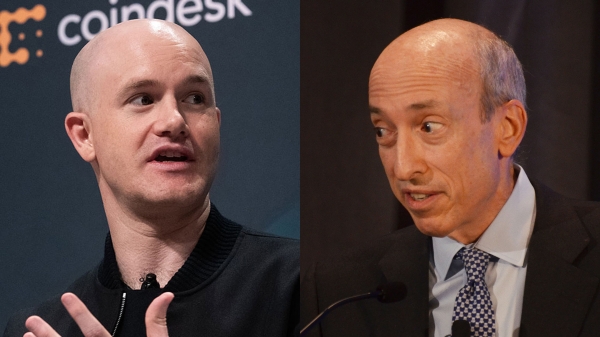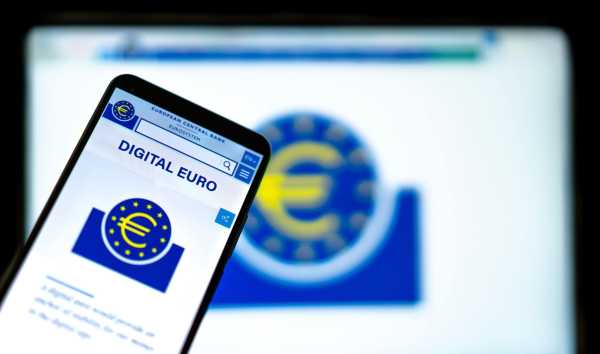Coinbase (COIN) Granted Significant Advance in Court Dispute With Gensler’s SEC
A U.S. judge halted the case in which the exchange and SEC are duking it out over an enforcement matter, and will let Coinbase chase a higher-court appeal.

What to know:
- Coinbase Inc. gets to pitch a major legal question to a higher U.S. court, potentially speeding along a final answer over whether certain crypto tokens should be treated as securities.
- A federal judge granted the company a request for a special, narrow appeal to the U.S. Court of Appeals for the Second Circuit, which could take up this core dispute between Coinbase and the Securities and Exchange Commission.
Coinbase Inc. has been given an unusual chance to skip ahead in a U.S. federal court dispute with the Securities and Exchange Commission (SEC) when a judge granted the company's request to chase a narrow appeal of the regulator's accusations about trading crypto securities.
If the U.S. digital assets exchange can get the U.S. Court of Appeals for the Second Circuit to take its appeal and agree that the SEC was wrong about its accusations that Coinbase improperly handled the trading of unregistered securities, such a decision would echo throughout the wider crypto industry.
Judge Katherine Polk Failla of the U.S. District Court for the Southern District of New York decided on Tuesday to approve a request from Coinbase to ask the higher court to consider one core question in the dispute, in a process known as an interlocutory appeal. And while Coinbase is chasing that matter, the rest of the case will sit idle.
Failla noted she doesn't appreciate the company's "efforts to cast aspersions on the SEC’s approach to crypto-assets," but she pointed out the clash in rulings from different federal courts on similar questions and decided that "conflicting decisions on an important legal issue necessitate the Second Circuit’s guidance."
At the heart of the legal clash between the U.S. securities regulator and the leading U.S. crypto exchange is whether certain tokens traded on the platform should be considered securities, and thus be seen as breaching the law.
Coinbase has argued, among other points, that the issuers of crypto tokens traded on its secondary market don't owe anything to the buyers, so the tokens don't tick the boxes of the legal standard for what makes a security, the so-called Howey test.
The judge said she's granting the April 2024 request "because it presents a controlling question of law regarding the reach and application of Howey to crypto-assets, about which there is substantial ground for difference of opinion, and the resolution of which would advance the ultimate termination of the SEC’s enforcement action."
"We appreciate the court's careful consideration," Coinbase Chief Legal Officer Paul Grewal posted on social-media site X. "On to the Second Circuit we go."
Read More: Coinbase Slugs It Out With U.S. SEC in Effort to Get Key Crypto Question Answered
A spokesperson for the SEC – still run by crypto skeptic Gary Gensler until he steps down as chairman when President-elect Donald Trump is sworn in on January 20 – declined to comment on the latest ruling.
In the end, this and other court disputes over what constitutes a crypto security could head toward the Supreme Court but finally run into irrelevance if Congress passes a new law to define how the assets and their trading should be regulated in the U.S. That's what the industry is aiming for with its political operations and lobbying efforts, focusing on steering this year's new Congress toward more industry-friendly legislation.
The SEC's leadership is also about to change hands to Republican control, which is likely to mean more openness to the crypto industry. A new agency chair could change the course of its enforcement actions, including this court case.



